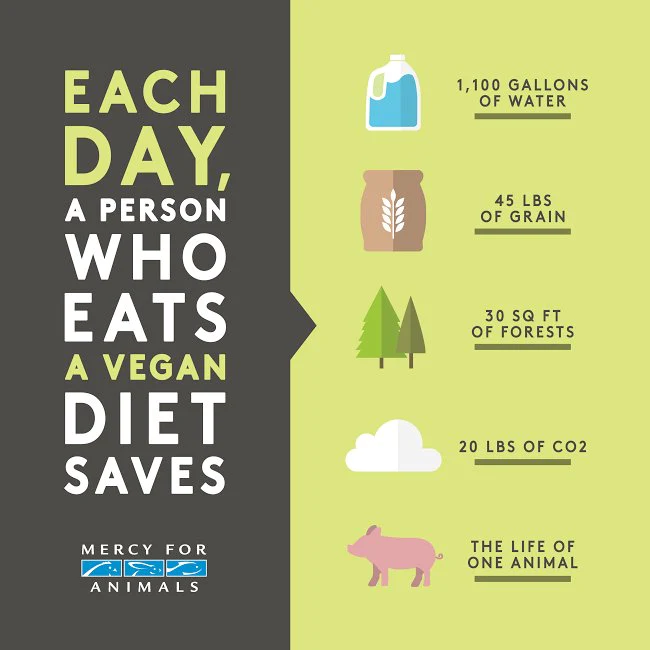As of late, vegan and vegetarian influencers have taken over social media, making many viewers question their own diets and lifestyles. Apps such as Instagram, Twitter, TikTok, and Facebook appeal to multiple generations and have gained immense popularity as a result. These sites allow users to introduce vegan and vegetarian practices to their followers to convince others to shift to plant-based diets.
Animal diets are proven to have lasting adverse effects on the Earth. The space needed to construct farms and the housing of animals uproots entire ecosystems. PETA, an organization advocating against animal consumption, says that 80% of the land destroyed in the Amazon rainforest is used by cattle ranchers.
According to UCLA Health dietitian Dr. Dana Ellis Hunnes, “a vegan or plant-based diet can grow 10,000 times as many calories on one acre of land as growing an animal.”
Factory farms that are packed with animals and manure are major sources of methane, which is a greenhouse gas that can destroy Earth’s ozone layer. Eating plant-based foods will also help decrease fossil fuel emissions. Burning oil and gasoline to produce animal products can raise carbon dioxide levels in the atmosphere, which is a major contributor to global warming. With increased deforestation and higher levels of toxic gasses being released into the atmosphere, the meat and animal products that the majority of Americans consume are major contributors to climate change.
In a study conducted by Harvard University, excessive carbon dioxide levels in the atmosphere have caused crops to lose their nutritional value. As a result, the number of undernourished people is likely to grow. Vegan diets are reported to produce 75% less environmentally damaging pollution. A standard American diet for one individual puts out up to 18 pounds of carbon per day. However, someone with a vegan diet only yields 3.6 pounds of carbon emissions in one day. Still, noticeable amounts of fossil fuels are burned to produce plant-based proteins essential for vegan and vegetarian diets.
Trending plant-based diets are the result of the recent demand for healthy, non-processed foods. According to Oxford University, “consuming roughly one-tenth of a pound of meat a day increases the risk of heart disease by a staggering 18%.” Animal products are high in cholesterol, which can lead to deadly cardiac issues such as a heart attack or stroke. Meat consumption has also been associated with cancers affecting the digestive system. Because of increased access to technology in the last two decades, humans, especially younger generations, have become more obsessed with health and proper nutrition. Social media inspires viewers who want to consume less processed foods and be more mindful of what they’re eating. Nonetheless, many people have refused to make the switch and embrace plant-based nutrition. Roughly 95% of Americans still consume animal products.
Despite the majority of people who don’t follow vegan and vegetarian diets, they are a great environmental alternative to eating meat. The lack of education on proper nutrition is prevalent in today’s society, where 41.9% of adults and 19.7% of children are considered obese. School cafeterias should introduce a variety of selections to children and encourage them to eat more nourishing meals that are not just healthier, but are better for the environment.

